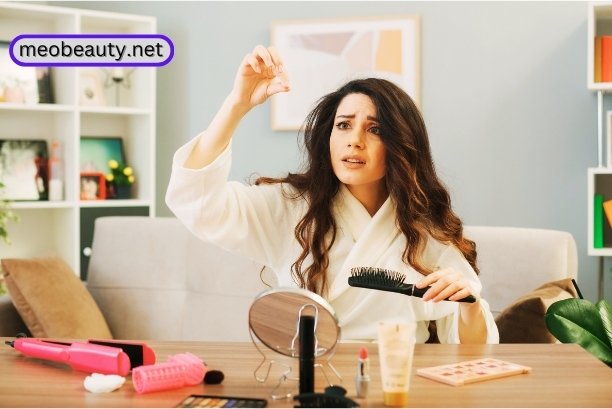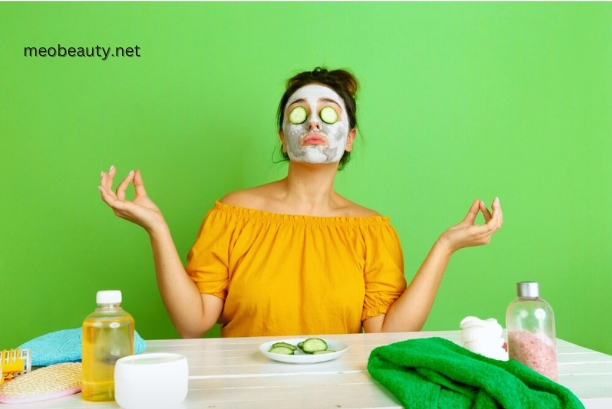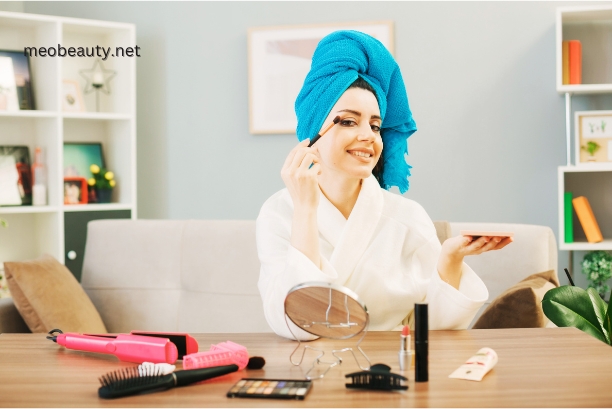Taking care of your hair maintains its strength and prevents damage. Healthy hair reflects your overall well-being and boosts confidence. “Why is It Important to Take Care of Your Hair”
Maintaining lustrous and healthy hair is a crucial aspect of personal grooming that transcends mere vanity. A well-kept mane not only enhances your appearance but also serves as an indicator of internal health. Proper hair care routine shields against environmental aggressors like sun damage, pollution, and harsh chemicals.
It involves using the right hair care products, regular washing, and trimming to prevent split ends, which could lead to breakage. Vibrant hair helps in making a good first impression, which is essential both in personal and professional settings. Strong, healthy hair also simplifies styling and management, ensuring you always look your best with minimal effort. Remember, your haircare routine is an investment in your image and self-esteem, paving the way for a positive outlook on life.

Credit: www.majoliesalon.com
The Link Between Hair Health And Self-image
The condition of your hair often reflects your overall health and how you perceive yourself. It’s not just a matter of vanity. Healthy hair can significantly impact self-confidence and the impression you make in social situations.
Psychological Impacts Of Hair Appearance
Hair is a crucial part of individual identity. Not only does it affect how others perceive you, but it also plays a significant role in your self-perception. Bad hair days can lead to frustration, while glossy, healthy hair can make you feel more positive. Consider these psychological effects:
- Confidence: Thick, shiny hair often translates to higher self-esteem.
- Mood: Your hair can influence your emotional state. For instance, a good haircut boosts happiness.
- Social Anxiety: People sometimes worry about judgement due to hair issues.
- Stress: Hair problems can cause extra stress in your daily life.
Cultural Significance Of Hair
In various cultures, hair holds deep significance and is tied to a person’s identity. This cultural connection shapes the way people care for their hair. Here’s how culture influences hair:
- Expression: Hair styles can express personal or cultural identity.
- Tradition: Certain hair customs hold historic meaning in many communities.
- Beauty Standards: Across cultures, hair is a hallmark of beauty and grooming.
- Social Status: In some societies, hair can indicate social standing.
Healthy hair often equals a positive self-image, affecting how we carry ourselves in the world. It’s not just about aesthetics, but also about cultural identity and psychological well-being.
Hair Damage: Recognizing The Signs
Treating your hair with care is essential for maintaining its health and beauty. Neglect leads to hair damage, making it look lifeless and dull. Spotting the early signs of hair damage is key to preventing further harm.
Identifying Common Hair Problems
Common hair problems include split ends, dryness, and breakage. Regular checks help spot these issues early on. Let’s delve into how to identify each problem.
- Split Ends: Look for strands that split into two or more fragments at the ends.
- Dryness: Hair lacking moisture feels rough to the touch.
- Breakage: Noticeable when you find short, broken off hairs in your brush or comb.
The Risks Of Neglecting Hair Care
Ignoring hair care can lead to lasting damage. Here are the risks:
| Problem | Consequence |
|---|---|
| Frizz | Unmanaged frizz can indicate dehydrated hair, needing moisture. |
| Lack of Shine | Dull hair often signifies overall hair health decline. |
| Thinning | Hair that thins may lead to hair loss if uncared for. |
Prevent these risks with timely and proper hair care. Use gentle products and avoid harsh treatments. Trims, hydration, and nutrition are your hair’s best friends. Keep watch for the signs and act swiftly to maintain hair that’s healthy, shiny, and full of life.
The Science Of Hair: Structure And Function
Your hair is more than just a statement of style. It’s a complex structure playing vital roles in protection, sensation, and regulation. Inside each strand is a world of biology and science. Understanding your hair’s anatomy and growth cycles can help you take better care of it. This leads to stronger, healthier hair.
Hair Anatomy And Growth Cycles
Hair is not just a single element but an intricate structure consisting of several parts.
- The follicle anchors each hair into the skin.
- The shaft, which we see, has three layers: the cuticle, cortex, and medulla.
A hair’s life has three phases: anagen, catagen, and telogen. Anagen is the growth phase. Catagen is the transition. Telogen is when hair falls out. Knowing this helps us understand hair loss and growth.
The Role Of Nutrition In Hair Health
Nutrition profoundly affects hair health. The right vitamins and minerals can boost hair growth. For example, iron, zinc, and vitamin B are essential for strong hair.
| Nutrient | Function | Food Source |
|---|---|---|
| Protein | Builds hair fibers | Meat, eggs, nuts |
| Omega-3 fatty acids | Nourishes the follicles | Fish, flax seeds, walnuts |
| Vitamin C | Collagen production | Citrus fruits, strawberries |
Eating a balanced diet ensures your hair gets all the nutrients it needs. This leads to healthier, stronger hair.

Credit: www.scribd.com
Effective Hair Care Routines
Healthy hair signifies overall well-being and boosts confidence. An effective hair care routine is vital. It prevents damage, maintains shine, and supports growth. Let’s explore key strategies for maintaining luscious locks every day.
Choosing The Right Hair Care Products
Selecting appropriate hair products is crucial for a tailored approach to hair care.
- Understand your hair type: Identifying whether your hair is dry, oily, or normal guides your product choices.
- Look for quality: Opt for products with nourishing ingredients suitable for your hair concerns.
- Avoid harmful chemicals: Steer clear of products laden with sulfates and parabens which can strip hair of its natural oils.
- Consider reviews and recommendations: Glean insights from others with similar hair profiles for product effectiveness.
Best Practices For Washing And Styling
Washing and styling are routine, yet pivotal for healthy hair.
- Limit washes: Too much washing can remove essential oils, leading to dryness.
- Use lukewarm water: Hot water can be harsh on your scalp and hair.
- Gentle drying: Pat your hair dry, avoiding vigorous rubbing which can cause breakage.
- Heat protection: Always apply a heat protectant before using heated styling tools.
- Natural drying: Whenever possible, let your hair air dry to avoid heat damage.
- Regular trims: Snip ends regularly to prevent split ends and encourage growth.
Professional Hair Care: When To Seek Help
We love our hair, but often it needs more than just at-home care. Knowing when to seek professional help is key to maintain healthy, vibrant hair. Professional stylists and trichologists can provide the right services to keep your hair in top shape.
The Benefits Of Regular Trims And Treatments
Think of regular hair trims like routine check-ups for your locks. They keep ends fresh and prevent split ends. Regular treatments, like deep conditioning, can restore moisture and strength. This is crucial for maintaining overall hair health.
- Prevents hair breakage
- Encourages hair growth
- Keeps hair looking smooth and shiny
Consulting A Trichologist For Hair Loss
Seeing hair on your pillow every morning? A trichologist specializes in hair and scalp health. They can help identify the cause of hair loss and provide tailored solutions.
They use advanced tools like scalp analysis to understand your hair’s needs.
| Signs You Need a Trichologist | How They Can Help |
|---|---|
| Excessive Hair Shedding | Treatment Plans for Regrowth |
| Scalp Issues | Personalized Care Routines |
| Thinning Hair | Nutritional Advice and Treatment |
Don’t wait for hair issues to worsen. Consult a professional to keep your tresses healthy and beautiful!

Credit: studiobesalon.com
The Broader Health Connection
Your hair says more than you think about your overall health. Understanding the broader health connection linked to hair care is vital.
Hair As An Indicator Of Overall Health
Hair’s condition can be an early warning sign of health issues. Thin, dry or losing hair might point to underlying problems like nutrient deficiencies or hormonal imbalances.
- Thick, vibrant hair: Indicates good health.
- Thin, brittle hair: Suggests nutritional gaps.
Stress, Hormones, And Hair Condition
Stress and hormones have direct effects on hair health. High stress can lead to hair loss. Hormonal changes may make hair thin or fall out.
| Stress Level | Hair Condition |
|---|---|
| High Stress | Possible Hair Loss |
| Low Stress | Healthier Hair |
Controlling stress is key to maintaining hair health.
FAQ On Why Is It Important To Take Care Of Your Hair
Why Should I Care About My Hair?
Caring for your hair boosts self-esteem and reflects overall health. Healthy hair prevents breakage and maintains a polished look. Proper hair care contributes to strong, vibrant, and manageable strands, enhancing personal and professional impressions.
What Can Happen If You Don’t Take Care Of Your Hair?
Neglecting hair care can lead to damage, such as split ends and breakage. Your scalp may become dry or oily, potentially causing dandruff or hair loss. Proper maintenance ensures healthy hair growth and appearance.
Why Is Home Hair Care Important?
Home hair care maintains healthy hair and scalp, saves money, and allows for personal styling preferences. Regular maintenance prevents damage and supports hair’s natural growth.
What Is The Most Important Part Of Hair Care?
The most important part of hair care is maintaining a healthy scalp through regular cleansing and proper hydration.
Conclusion
Taking proper care of your hair goes beyond just appearance. It’s a reflection of your overall health and well-being. Remember, healthy hair is achievable with commitment and the right routine. Embrace these practices for lustrous, strong locks that enhance your confidence and highlight your self-care priorities.
Make hair care a non-negotiable part of your daily regimen.









Leave a Reply